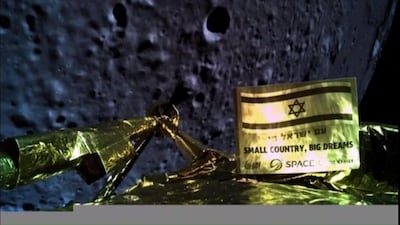An Israeli spacecraft has failed in its attempt to make history as the first privately funded lunar mission.
SpaceIL craft Beresheet failed to slow down on approach to the moon because of an engine failure, losing touch with Earth just before it was scheduled to land and apparently crashing into the surface.
"We are on the moon but not in the way we wanted," one unidentified staffer said.
SpaceIL chairman Morris Kahn said: “We got within a short distance of that soft landing but this is what happens in space.
“There’s some desire already to plan the next launch, and the next one will do better and we will succeed.”
Yariv Bash, one of SpaceIL's founders, said the group would send up another probe within two or three years.
The unmanned spacecraft Beresheet, which is Hebrew for "genesis", resembles a tall, oddly shaped table with round fuel tanks under the top.
It was launched from Cape Canaveral in Florida on February 22 with a Falcon 9 rocket from Elon Musk's private US SpaceX company.
It reached a speed of 10 kilometres per second.
The one-way trip was to have included an attempt to measure the lunar magnetic field, which would have helped to understand the moon's formation.
Israelis around the country gathered to watch the landing, including at the president’s residence. The arrivals and departures board at Ben-Gurion International Airport showed one unusual destination among the typical ones: “Moon.”
During the broadcast, control staff said that engines meant to slow the craft's descent and allow a soft landing had failed and contact with it had been lost.
The $100 million moon landing project was a joint venture between SpaceIL and the state-owned IAI, financed mostly by philanthropists including Mr Kahn and casino magnate Sheldon Adelson.
If successful, it would have made Israel the fourth country to land on the moon.
Only Russia, the US and China have made the 384,000-kilometre journey and landed safely.

